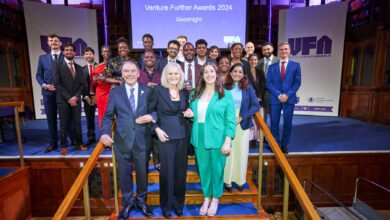What US entrepreneurs can learn from Chinese theorist Wang Huning

In August 1988, 32-year-old Chinese professor Wang Huning started a six-month academic tour of the United States.
He visited over 30 cities, including Philadelphia—home to what he called “physical textbooks of political tradition” — and the Gateway Arch in St. Louis. He admired these American temples to nationhood nearly as much as he admired the country’s technological leadership—from space exploration to electronic pencil sharpeners. True.
All this made it into a book he published with the translated title of “America Against America.” In recent years, the book has had a revival in China, and here too among policy wonks. That’s because Wang is today one of the most influential political theorists for the Chinese Communist Party. What he experienced 35 years ago is demonstrably shaping global politics today. I want to tell what lesson his experience might have for you.
In a way, this is what Technical.ly does: we seek out small people stories that help explain bigger complex issues. That’s journalism.
This year marks 15 years of publishing Technical.ly — this website — a local news org read by technologists and entrepreneurs in five US markets. We’re a small team of 15 that was described recently as “one of the longest-surviving local online news sites.” What a grim description.
In the United States, it is not the people who master the technology, but the technology that masters the peopleWang Huning ‘America Against America’
The internet’s global scale wrecked the 20th century model of local news. You know that already. Nonprofit news models backed by charitable giving are slowly growing in many communities and good thing.
But my career has focused on how commercial models can adapt in the digital age, and the AI age to follow. Mostly this work has been left behind because it’s too boring for most people who love journalism, and it doesn’t make enough money for people who like to make money.
At Technical.ly, we’ve kept our media business-model straightforward: serve an audience that matters, and then grant access to that audience. This approach has not only sustained us but has allowed Technically to thrive (relatively) in an era where the traditional models of local news have struggled. If you need to hire technologists or reach entrepreneurs, then we can help, which in turn supports our journalism.
So let me share what I take as Wang’s central message.
As enthralled as Wang was with invention in the United States, he wrote that Americans had come to rely too much on technology. He pointed to how we treat our elders and people with disabilities. We conjure whiz-bang technologies such as “automatically guided wheelchairs, automated bedside service equipment and glasses that guide the blind.” But, he argued, very few of us spend much time with people who rely on these tools. Americans have a superficial sense of community, he thought. Technology is used as an escape from responsibility.
In the United States, Wang wrote, “it is not the people who master the technology, but the technology that masters the people.”
In policy circles today, analysts focus on the conclusion from Wang, who is now considered a major influence on Chinese policy. American leaders are wary of China’s authoritarian, one-party rule. As Wang put it back then: “If you want to overwhelm the Americans, you must do one thing: surpass them in science and technology.”
When Wang visited Independence Hall in Philadelphia’s Old City, the line was too long to venture in. Standing on Chestnut Street, I like to imagine this future architect of one of the most important political systems on the planet groaning at too many tourists from Iowa — deciding with his tour group to get steaks wiz wit or just settle for a hoagie. Yet reading his book, he was clearly in awe of the American project.
Peering through the windows into where the US Constitution was debated and signed, Wang asked of the Americans, but surely looking inwardly of his Chinese home too, “If the value system collapses, how can the social system be sustained?”
One of the defining features of the US value system is independent, challenging and professionally verified information — that is trusted by a wide range of Americans.
Journalism is a strategy that uses storytelling to help a community reach a closer approximation of its truth. Whether that community is big or small doesn’t matter. Whether it’s in news articles or TikToks, podcasts or events, doesn’t matter either. More important is with whom and how we build trust to deliver uncomfortable truths.
In my view, bare-knuckled entrepreneurship and science-backed technology are other key parts of the American value system.
They are all central to the noisy and dyspeptic thing we call the United States. That’s why I’ve contributed all I can to being one more journalistic source about issues I care so much about: building technology, growing companies and getting more people access to these careers.
That’s a message I hope we all take: Build with your values in mind. Be curious about the world. And don’t wait too long in line for a tourist stop.
Join the conversation!
Find news, events, jobs and people who share your interests on Technical.ly’s open community Slack
Technically Media



